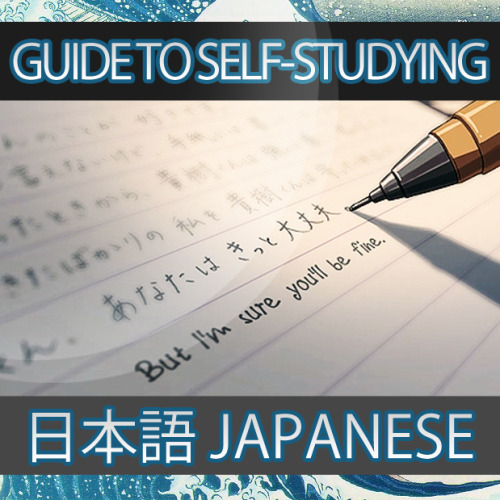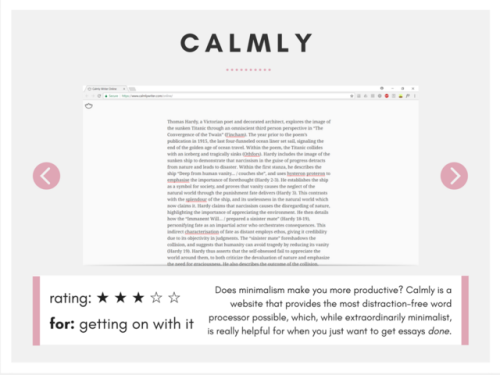English: One Million
english: one million
japanese: :)
english: oh boy
japanese: one hundred ten thousands
More Posts from Earthquakedeer and Others

For my friends fighting through finals and midterms this month and next month. Good luck fam!
住む vs.暮らす
Both of these verbs means “to live” but there is a slight nuance in meaning.
住む「すむ」simply means to live somewhere, the act of of you residing in a house, apartment, etc
暮らす「くらす」means to live but focuses on the 生活 (daily life) and interactions with the place you live
例えば:
僕は東京に住んでいる。This sentence simply means that I live in Tokyo, that I existence and take residence in Tokyo.
僕は東京に暮らしている。This sentence means that I not only reside in Tokyo, but my daily life and interactions are in Tokyo. May imply that I also work there, my whole life is in Tokyo, more than just a place of existence.
Both words are interchangeable, so if you use one in place of the other it’s totally fine, they only really matter when you want to imply something more in the meaning. Also, 一人暮らし「ひとりぐらし」 is a noun that means to live alone or have a solitary life. Thought you guys might find that word useful!

Guide to Self-Studying Japanese
A large proportion of Japanese learners self-study. Finding places to learn Japanese in a classroom environment can be difficult and expensive. Here’s a guide on how you can learn Japanese for free and from the comfort of your sofa.

When learning Japanese, the most important step is to learn Hiragana and Katakana, the writing alphabets of Japanese.
The best way I’ve found to do that is to make flashcards. Make sure you practice writing as well as recognizing them, this will not only be a great skill to have but will also reinforce the shapes in your mind.
Resources:
[Hiragana 42], the best guide I’ve found to learn the Hiragana (in a day!) [Hiranana and Katakana Quiz Site] [Kana Invaders Game] [Anki] An amazing program that will make sure you never forget any Kana….

The next step is to start learning vocabulary. Where can you find what to learn? Use a site like Memrise to find word lists (for example, there is a word list for all the vocabulary in starter textbooks like Genki), and use the amazing interface to learn them and keep them in your long term memory.
Resources:
[Memrise] as mentioned above to find and learn vocabulary lists. [Most Common Words List] [Anki] An amazing program that will make sure you never forget any Vocabulary….

While encountering vocabulary, you’re likely to be coming across super-complicated-looking Kanji. You can learn Kanji through Memrise as above, but there are some other websites that may be of interest.
Resources:
[Kanji Damage] A great site where you can learn Kanji through mnemonics. [WaniKani] by the same people who make TextFugu can help you learn Kanji from scratch. [Anki] An amazing program that will make sure you never forget any Kanji….

The next step is to apply that new vocabulary to grammar points and start making sentences.
If you can’t get your hands on textbooks like Genki, don’t fear! There are a lot of great online grammar resources.
Resources:
[TextFugu] a highly rated ‘online textbook’ which will guide you right from the beginning of learning Japanese. [Guide to Japanese] another online textbook with a lot of grammar points and excellent explanations.

So you probably started to learn Japanese because you have some interest in Japanese media. Time to start using it to your advantage!
Aside from the obvious watching Anime, J-dramas and films, why not try Reading Japanese News? Watching Japanese TV? Just make sure you are making these activities productive - note down new vocabulary, add them to Anki, and keep learning! It’s much easier to learn things you’re interested in.

The most important but difficult part of self-studying Japanese is getting your own compositions checked. Utilize all that grammar and vocabulary and write a short piece, it could be a diary entry or a short essay. Get it recorded for you by a native on RhinoSpike, and checked for grammar and consistencies on Lang-8.These sites also give you the chance to connect with Japanese natives, and perhaps start up some language exchanges!
For more resources, take a look at my Ultimate Resources List
Any more tips? Please submit them here!




Hakone Japan - 2017
Shot by Sony α6300
More images on www.instagram.com/valiantjapanese
blue surface with white fog by takay Via Flickr: and autumn colors. Matsudai,Niigata,japan.
Ready for a writing session today?
If you’re seeing this, consider either:
Writing for 15 minutes or
Brainstorming for 15 minutes!
With November coming up, I know quite a few of us intend participating in NaNoWriMo and/or tackling a writing project. This weeks writing session is dedicated to whatever you want to do to prep!
PSA! I plan on holding a write in during the upcoming week, so keep a lookout for that announcement here on this blog, eggletine.tumblr.com or on my twitter (you can find me @Eggletine)
N5 verb list
会う (あう)- to meet
開く (あく)- to become open
開ける (あける)- to open
上げる (あげる)- to give
遊ぶ (あそぶ)- to play, to make a visit
あびる - to bathe, to shower
洗う (あらう)- to wash
ある - to be, to have (inanimate)
歩く (あるく)- to walk
言う (いう)- to say
行く (いく)- to go
居る (いる)- to be, to have (animate)
要る (いる)- to need
入れる (いれる)- to put in
歌う (うたう)- to sing
生まれる (うまれる)- to be born
売る (うる)- to sell
起きる (おきる)- to get up
置く (おく)- to put
教える (おしえる)- to teach, to tell
押す (おす)- to push, to stamp
覚える (おぼえる)- to remember
泳ぐ (およぐ)- to swim
降りる (おりる)- to get off, to descend
終わる (おわる)- to finish
買う (かう)- to buy
返す (かえす)- to return something
帰る (かえる)- to return, to go back
かかる - to take time or money
書く (かく)- to write
かける - to call by phone
貸す (かす)- to lend
借りる (かりる)- to borrow
消える (きえる)- to disappear
聞く (きく)- to hear, to listen, to ask
切る (きる)- to cut
着る (きる)- to put on
曇る (くもる)- to become cloudy/dim
来る (くる)- to come
消す (けす)- to erase, to turn off
答える (こたえる)- to answer
コピーする - to copy
困る (こまる)- to be worried
咲く (さく)- to bloom
差す (さす)- to stretch out, to raise
散歩する (さんぽする)- to stroll
死ね (しね)- to die
閉まる (しまる)- to close, to be closed
閉める (しめる)- to close something
締める (しめる)- to tie
知る (しる)- to know
吸う (すう)- to smoke
住む (すむ)- to live in
する - to do
座る (すわる)- to sit
掃除する (そうじする)- to clean, to sweep
出す (だす)- to put out
立つ (たつ)- to stand
頼む (たのむ)- to ask
食べる (たべる)- to eat
違う (ちがう)- to differ
使う (つかう)- to use
疲れる (つかれる)- to get tired
着く (つく)- to arrive at
作る (つくる)-to make
つける - to turn on
勤める (つとめる)- to work for someone
出かける (でかける)- to go out
できる - to be able to
出る (でる)- to leave, to go out
取る (とる)- to take something
撮る (とる)- to take a photo or film
鳴く (なく)- to chirp, roar, croak etc
無くす (なくす)- to lose something
習う (ならう)- to learn
並ぶ (ならぶ)- to line up, to stand in line
並べる (ならべる)- to line up, to set up
なる - to become
脱ぐ (ぬぐ)- to take off clothes
寝る (ねる)- to sleep, to go to bed
登る (のぼる)- to climb
飲む (のむ)- to drink
乗る (のる)- to ride, to get on
入る (はいる)- to enter, to contain
はく - to wear, to put on trousers
始まる (はじまる)- to begin
走る (はしる)- to run
働く (はたらく)- to work
話す (はなす)- to speak
貼る (はる)- to stick
晴れる (はれる)- to be sunny
引く (ひく)- to pull
弾く (ひく)- to play an instrument
吹く (ふく)- to blow (wind)
降る (ふる)- to fall (rain, snow)
勉強する (べんきょうする)- to study
曲がる (まがる)- to turn, to bend
待つ (まつ)- to wait
磨く (みがく)- to brush teeth, to polish
見せる (みせる)- to show
見る (みる)- to see, to watch, to look
持つ (もつ)- to hold
休む (やすむ)- to rest
やる - to do
行く (ゆく)- to go
呼ぶ (よぶ)- to call out, to invite
読む (よむ)- to read
練習する (れんしゅうする)- to practice
分かる (わかる)- to be understood
忘れる (わすれる)- to forget
渡す (わたす)- to hand over
渡る (わたる)- to go across

★ 猫の手も借りたい (neko no te mo karitai) literally means “I even want to borrow a cat’s hand.” ★ You use this kotowaza when you are so busy that you feel like you would even take help from a cat. みなさんはどんな時に猫の手も借りたいですか? ฅ'ω'ฅ http://www.punipunijapan.com/neko-no-te-mo-karitai/








Here’s some weapons for your essay writing arsenal!
Hemingway Editor Calmly Writer The Most Dangerous Writing App Purdue O.W.L. One Look Thesaurus JSTOR Google Scholar
Reply with your favourite or other great websites I didn’t include!
そうじゃないの?
そう じゃない の?
That’s not it?
-
 plankton223 liked this · 2 years ago
plankton223 liked this · 2 years ago -
 maeiu reblogged this · 3 years ago
maeiu reblogged this · 3 years ago -
 rottweiler-concentrate reblogged this · 3 years ago
rottweiler-concentrate reblogged this · 3 years ago -
 oh-so-watermelon liked this · 3 years ago
oh-so-watermelon liked this · 3 years ago -
 nellzzz liked this · 3 years ago
nellzzz liked this · 3 years ago -
 frxzxne liked this · 3 years ago
frxzxne liked this · 3 years ago -
 rottweiler-concentrate reblogged this · 3 years ago
rottweiler-concentrate reblogged this · 3 years ago -
 dauhgters liked this · 3 years ago
dauhgters liked this · 3 years ago -
 sad-rainbows-and-bad-cakes liked this · 3 years ago
sad-rainbows-and-bad-cakes liked this · 3 years ago -
 i-love-books-because-reasons liked this · 3 years ago
i-love-books-because-reasons liked this · 3 years ago -
 onepulseatatime liked this · 3 years ago
onepulseatatime liked this · 3 years ago -
 hazelnut-latte-studies reblogged this · 3 years ago
hazelnut-latte-studies reblogged this · 3 years ago -
 tender-tempest liked this · 3 years ago
tender-tempest liked this · 3 years ago -
 xladeya liked this · 3 years ago
xladeya liked this · 3 years ago -
 moswaldo liked this · 3 years ago
moswaldo liked this · 3 years ago -
 kyanitedragon reblogged this · 3 years ago
kyanitedragon reblogged this · 3 years ago -
 grammarpedant liked this · 3 years ago
grammarpedant liked this · 3 years ago -
 meerkatvendettas reblogged this · 3 years ago
meerkatvendettas reblogged this · 3 years ago -
 blessphemy reblogged this · 3 years ago
blessphemy reblogged this · 3 years ago -
 blessphemy reblogged this · 3 years ago
blessphemy reblogged this · 3 years ago -
 hoarder-of-stories-27 liked this · 3 years ago
hoarder-of-stories-27 liked this · 3 years ago -
 blessphemy reblogged this · 3 years ago
blessphemy reblogged this · 3 years ago -
 kyanitedragon reblogged this · 3 years ago
kyanitedragon reblogged this · 3 years ago -
 dearkei liked this · 3 years ago
dearkei liked this · 3 years ago -
 the-dark-knight-bryces liked this · 3 years ago
the-dark-knight-bryces liked this · 3 years ago -
 kanpeki-bekki reblogged this · 3 years ago
kanpeki-bekki reblogged this · 3 years ago -
 inkdrawndreamer liked this · 3 years ago
inkdrawndreamer liked this · 3 years ago -
 eurydicees liked this · 3 years ago
eurydicees liked this · 3 years ago -
 brodyliciousbooty liked this · 3 years ago
brodyliciousbooty liked this · 3 years ago -
 lokh liked this · 3 years ago
lokh liked this · 3 years ago -
 origami10 reblogged this · 3 years ago
origami10 reblogged this · 3 years ago -
 takobebop liked this · 3 years ago
takobebop liked this · 3 years ago -
 shadyjellyfishmaker liked this · 3 years ago
shadyjellyfishmaker liked this · 3 years ago -
 mariatugazabs reblogged this · 4 years ago
mariatugazabs reblogged this · 4 years ago -
 theblueroom8 reblogged this · 4 years ago
theblueroom8 reblogged this · 4 years ago -
 neighborhood-dork liked this · 4 years ago
neighborhood-dork liked this · 4 years ago -
 sazula reblogged this · 4 years ago
sazula reblogged this · 4 years ago -
 jacob-frye-appreciation-blog liked this · 4 years ago
jacob-frye-appreciation-blog liked this · 4 years ago -
 gdgsflame liked this · 4 years ago
gdgsflame liked this · 4 years ago -
 obsidianbutterfly reblogged this · 4 years ago
obsidianbutterfly reblogged this · 4 years ago -
 wizardking789 liked this · 4 years ago
wizardking789 liked this · 4 years ago -
 chiwilei liked this · 4 years ago
chiwilei liked this · 4 years ago -
 creativelylogical liked this · 4 years ago
creativelylogical liked this · 4 years ago
Just a person learning Japanese. Self-learner. If you're also studying Japanese and want to practice with someone (and you're also very much a beginner) then message me! はじめまして! さびーなです。よとしく!
196 posts